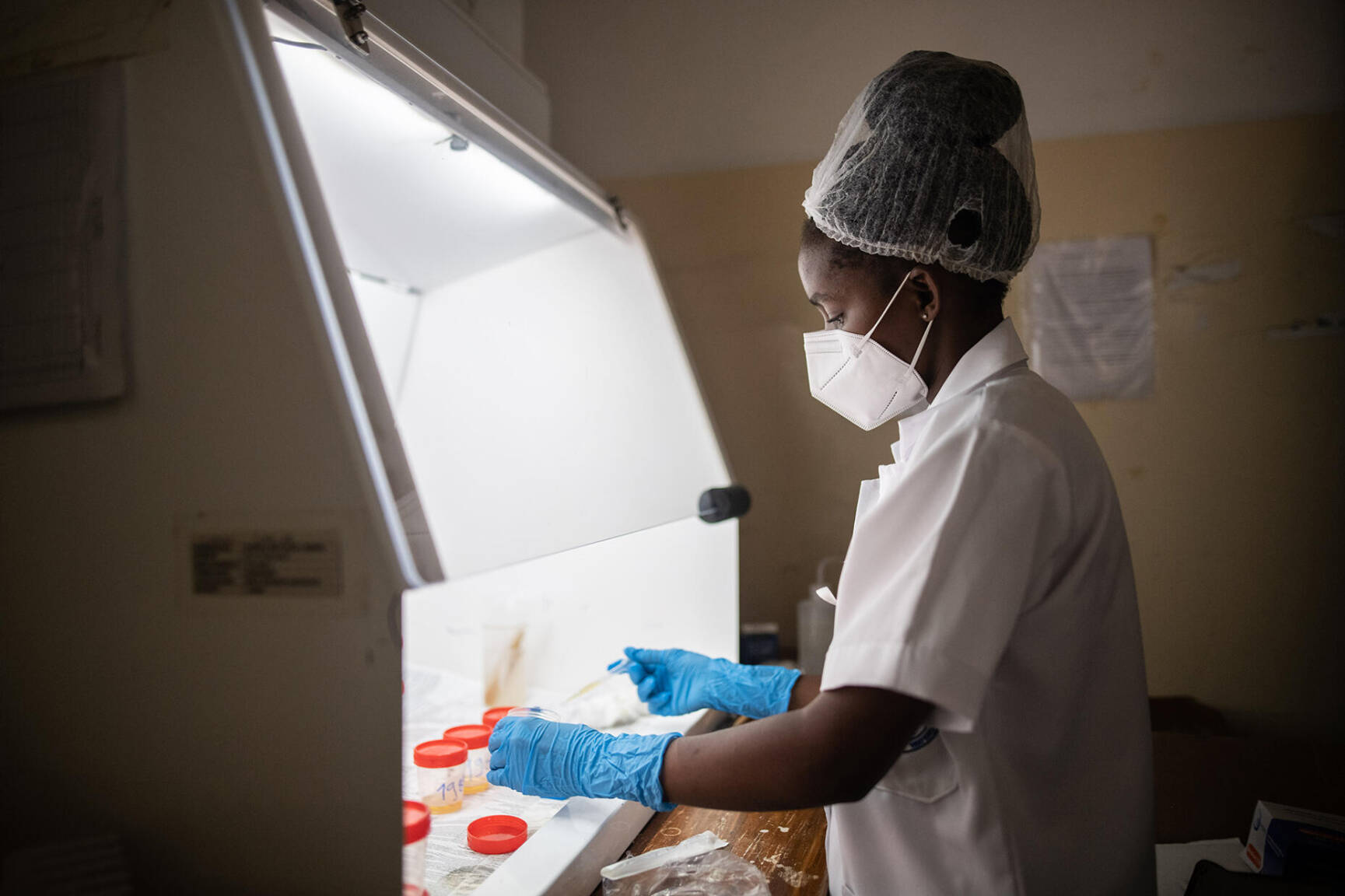scroll down
Professor Marielle Bouyou-Akotet has identified a possible connection between common infections and the risk of non-communicable disease.

Her other studies have focused on infectious diseases common in Gabon, particularly malaria. She explored the impact of the COVID-19 pandemic on healthcare-seeking for malaria, finding a sharp increase in self-medication that led to poorer outcomes.
In addition, she has contributed to international collaborations investigating genetic diversity of the malaria parasite, including studies showing that genetic variation affects the severity of disease.
Building on the findings from other EDCTP2-funded studies, Professor Bouyou-Akotet also led a study that identified a high prevalence of cryptococcal infections in hospitalised HIV patients with neurological symptoms. Almost one in four patients were positive for a urine-based test for cryptococcal antigen (CrAg). The results argue for the importance of introducing CrAg testing in Gabon to identify patients at high risk of death.
Professor Marielle Bouyou-Akotet was awarded a Senior Fellowship through a scheme organised jointly by EDCTP2 and GlaxoSmithKline (GSK), which focused on links between infections and non-communicable diseases (NCDs), such as diabetes and cardiovascular disease.
Working in Gabon, she has found that asymptomatic intestinal infections are associated with a state of chronic inflammation, a known risk for NCDs. Since such infections are common in sub-Saharan Africa, they could be making a major contribution to long-term health conditions, suggesting that improved prevention and treatment of infectious diseases could have spin-off benefits by also reducing the burden of NCDs.
As part of these studies, Professor Bouyou-Akotet has also identified a high prevalence of other cardiovascular disease risk factors in Gabon, such as inactivity, smoking and obesity, and mapped how these varied by gender, age, and rural or urban location.
Infectious links to cardiovascular disease